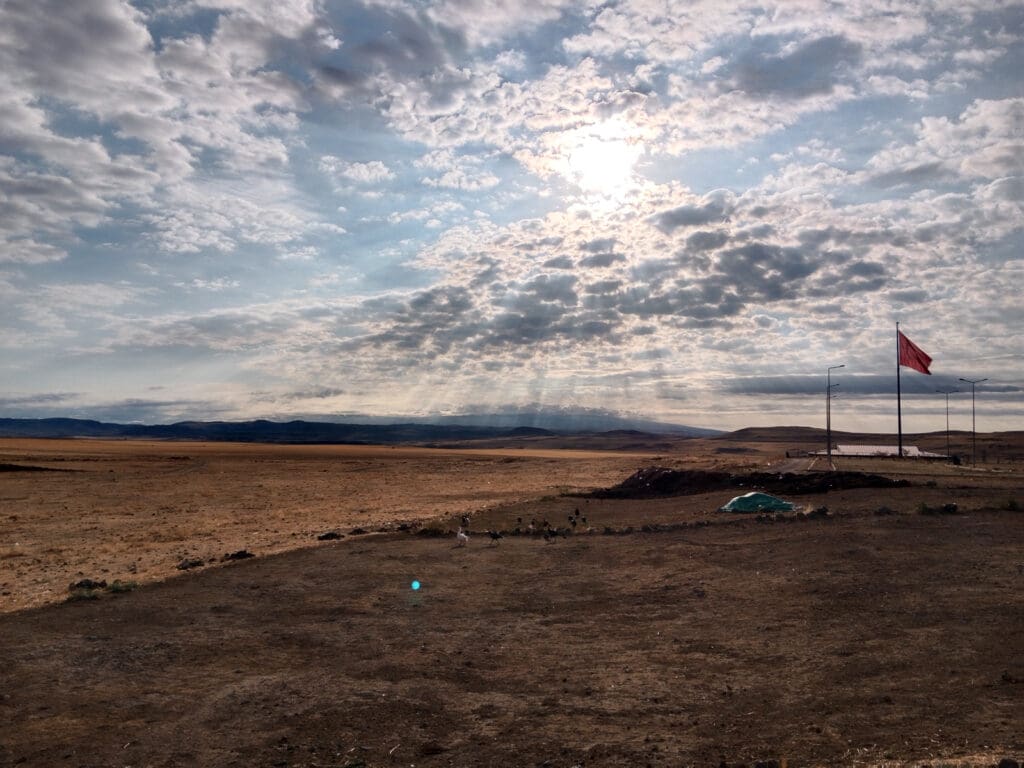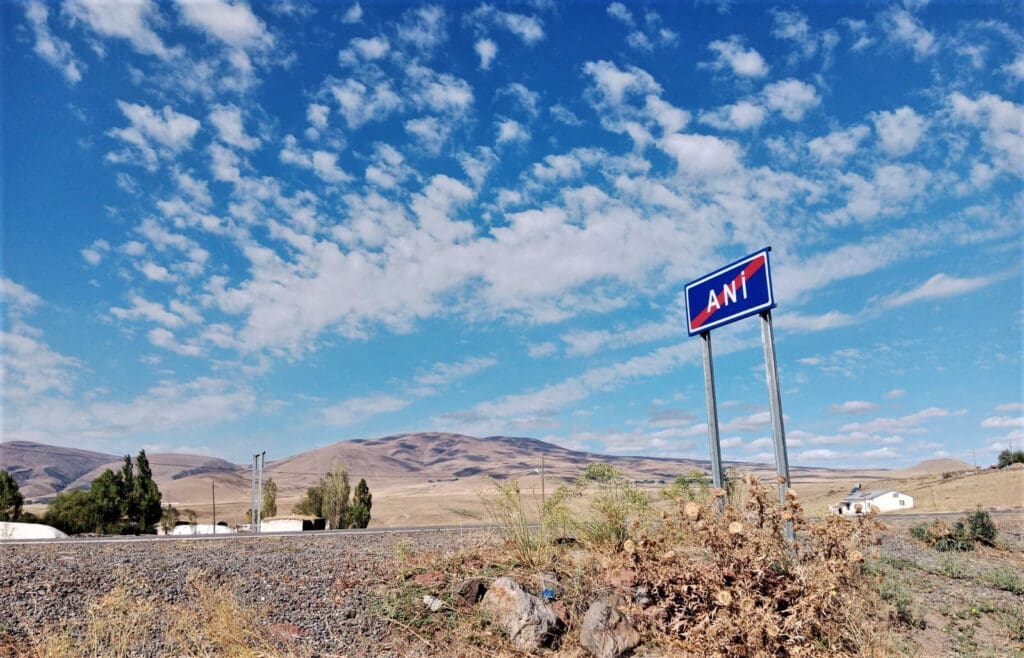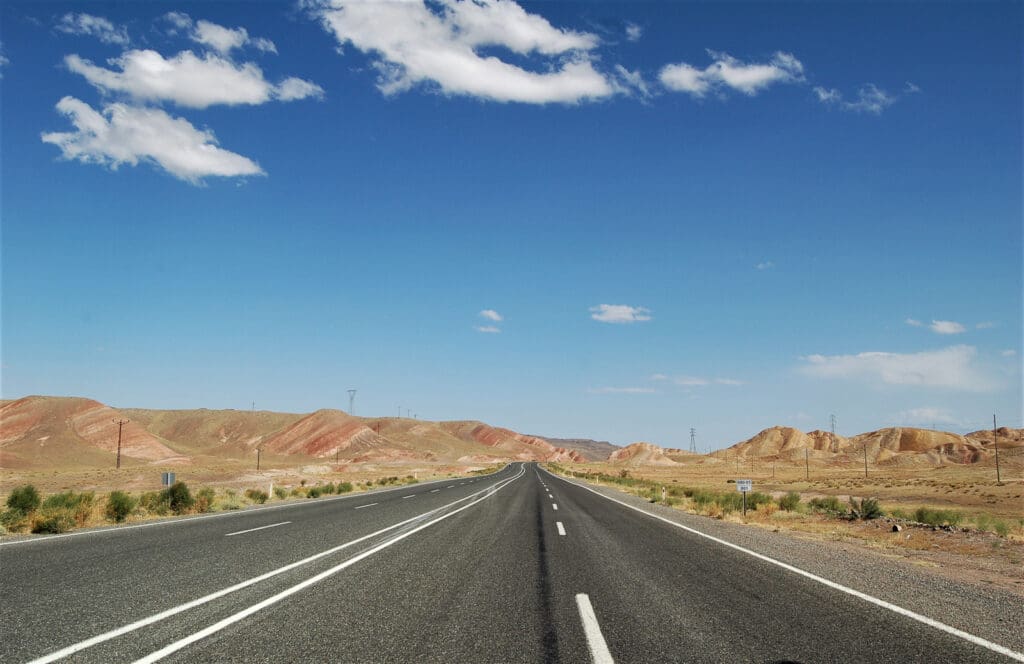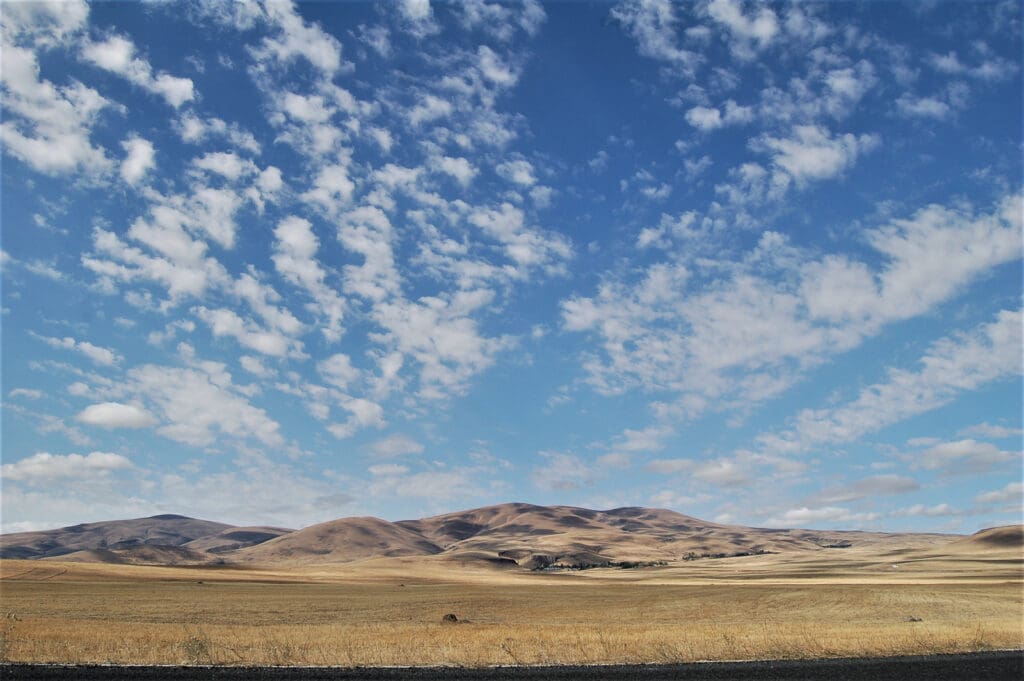Here it is cool and thin, in the middle hours, the sun’s rays barely round it. The four freshly paved lanes cut through expanses of dry grass: in a few months it will all be covered in snow. A few shacks here and there, a town with its bazaar, a minaret marking prayer time. Then nothing for hundreds of miles. The sky does not betray a single cloud in 15 days. It’s air in three dimensions and so deep that I feel like I’ve never seen a sky before.
The blue dot on the GPS stops far beyond the political borders of Mother Europe: we are in the Turkish-Iranian plateau, between 1,500 and 2,000 m above sea level. All around us, are the “hot” areas of the Middle East: nothing would suggest this but the checkpoints that show up on time two or three times a day.
In the village near Ani, the ancient capital of the Armenian kingdom, the asphalt disappears. Potholes, rammed earth and dry stone walls border the houses, a good percentage of which have their roofs caved in. It is summer, so we do not realize how climatically extreme this place is. Because of altitude and latitude, this area goes well below freezing in winter. Of trees, not even a shadow. I wonder how people warm up here, and the answer will come soon.
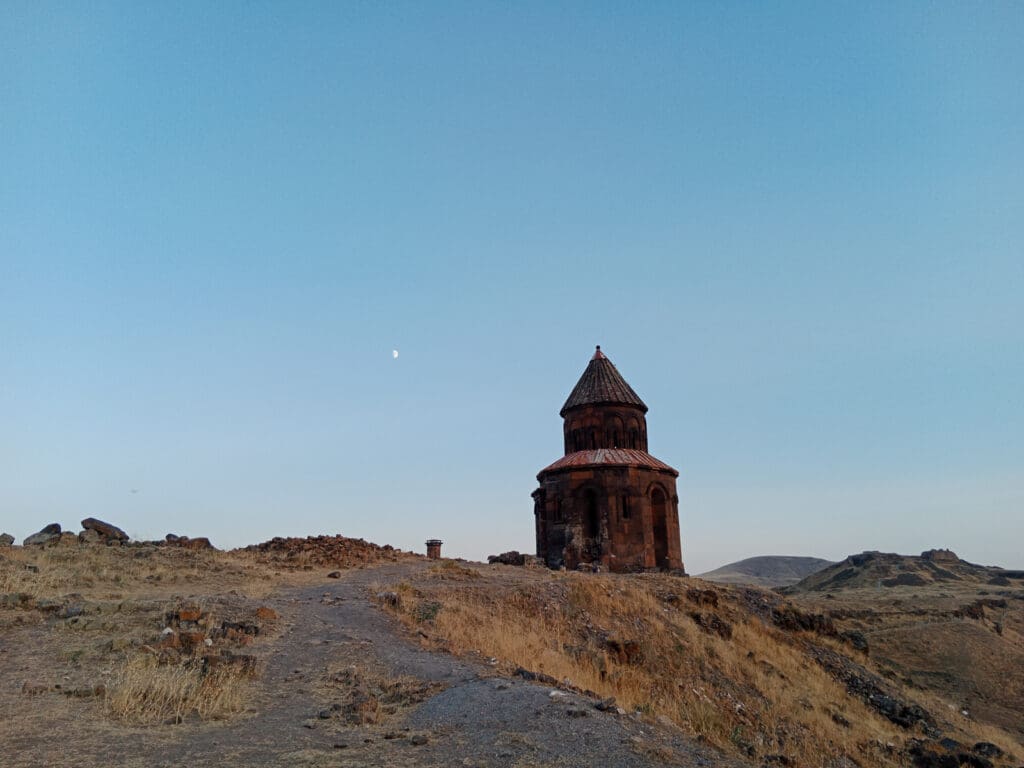
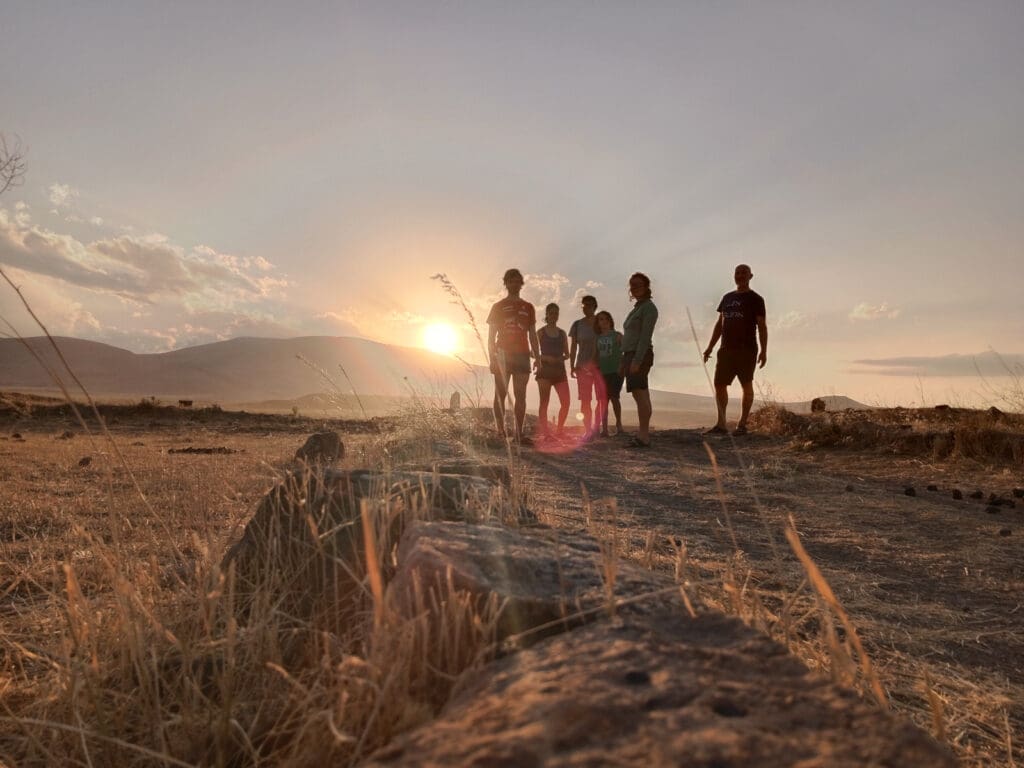
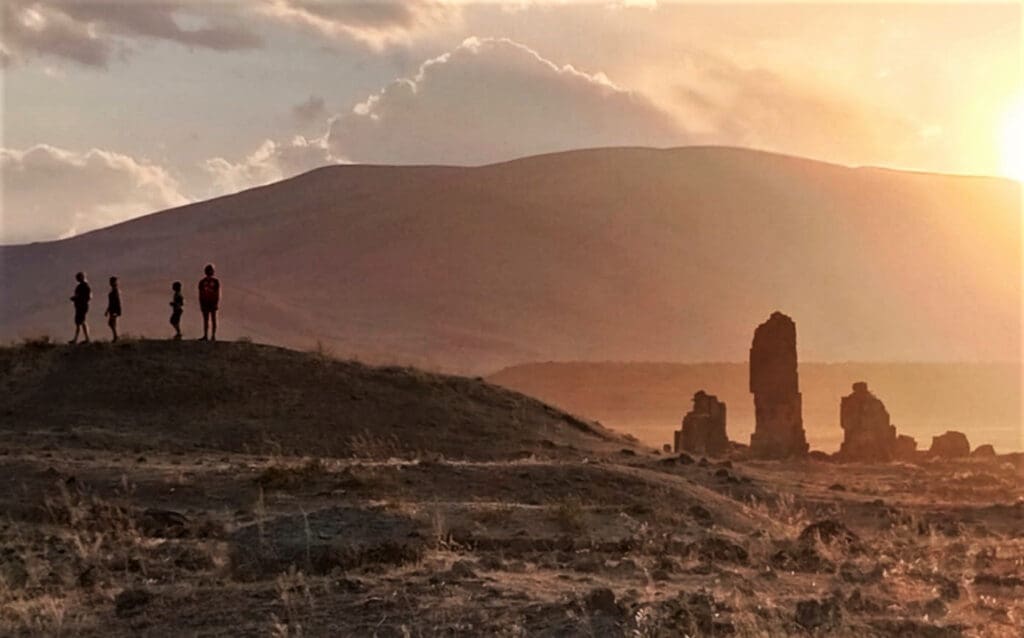
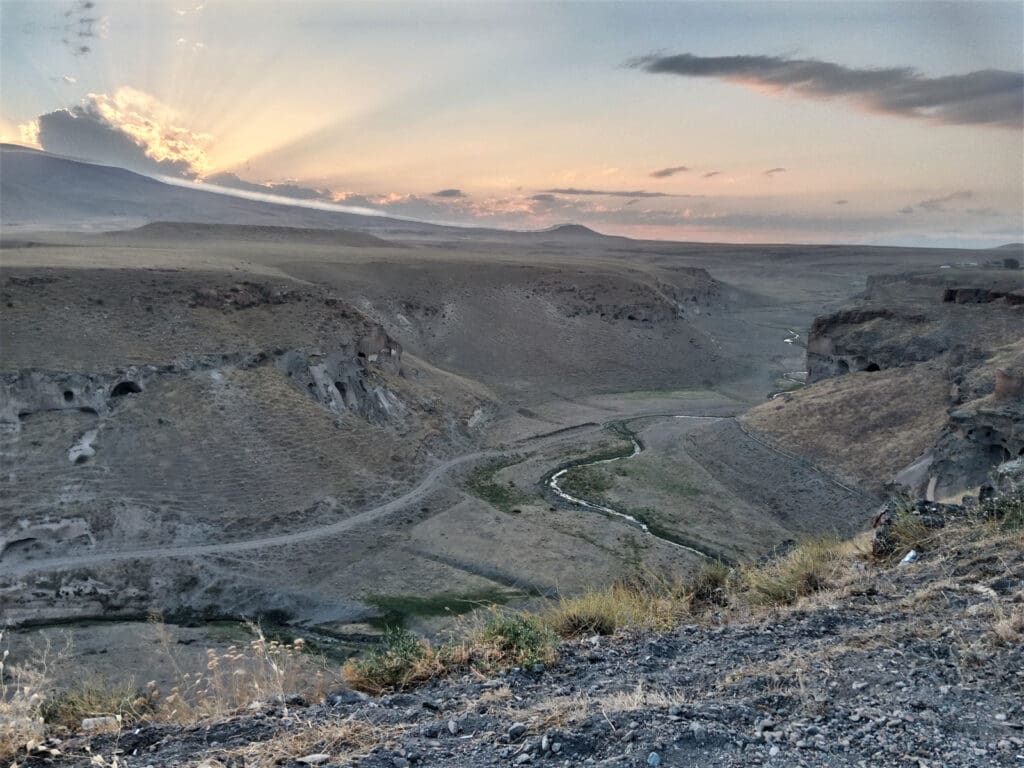
Being born in a remote place
I get out of the van to take a picture: every corner has an idea that I wish I could be able to render with a picture. A lady notices me: there are no other tourists and we do not go unnoticed at all. He invites us all into a tiny room where he is drying noodles in the oven to use as supplies in the cold season. He doesn’t speak a word of English but, translator in hand, we understand each other.
He puts some of the noodles in a plastic bag and offers them to us with an open smile. Meanwhile, the two daughters arrive with a tray full of small glasses with white contents. We have just had breakfast, but we cannot refuse this kind of salty, sour milk that we have come to know by now. Everyone adopts his or her defence strategy: drinking in small sips trying not to betray grimaces, drinking quickly to get the problem out of the way (this will prove counterproductive when our guests come over to refill the glass), or sticking it to someone else.
The eldest daughter’s name is Merve and she speaks some English. He does so in a dim manner and blushes when he does not remember some terms. But the father swipes his cell phone with a translator: “My daughter goes to school, that’s where she learned English.” He says it with his eyes, almost more than with the words that appear on the screen.
The fuel with which the woman is cooking the noodles arouses quite a bit of curiosity: we learn that it is dried animal dung bricks. It is with this that highlanders warm themselves in winter. Mom is pregnant. She is expecting her fourth child, still a girl. A shiver of excitement runs down my spine, imagining a new little life in a remote place like this.
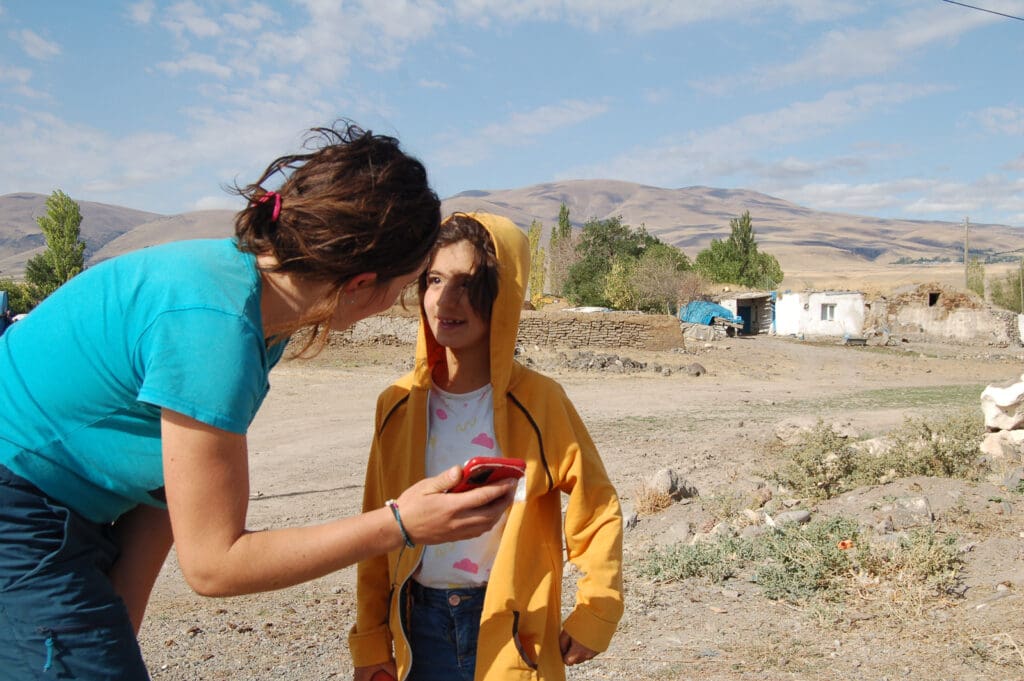
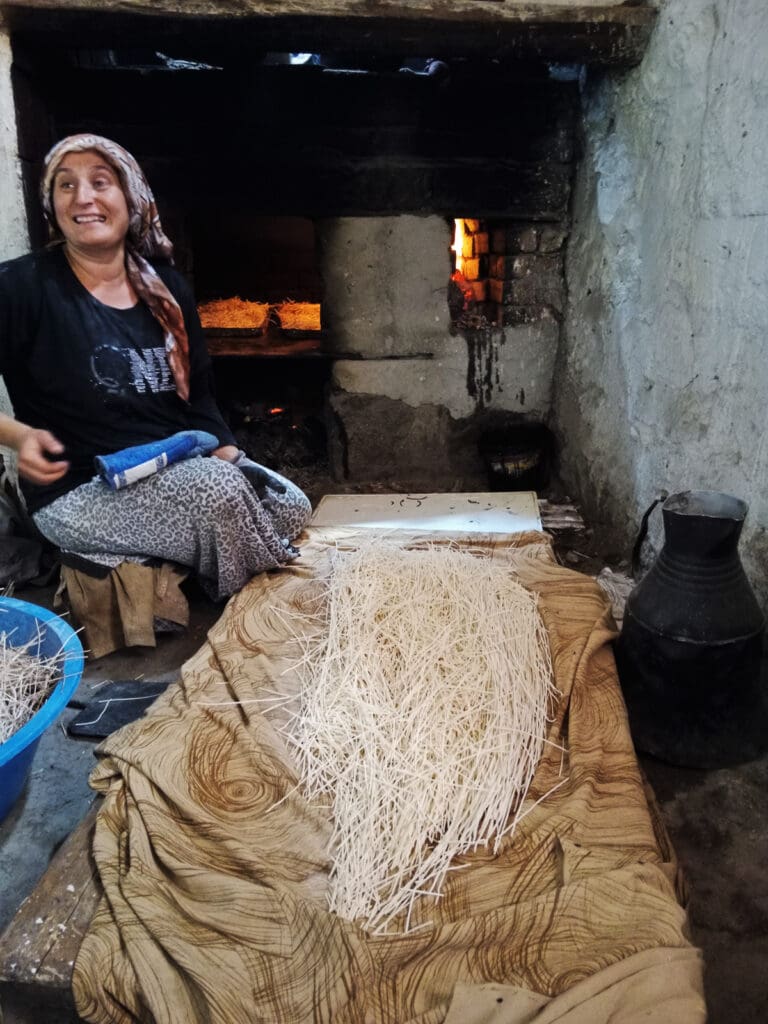
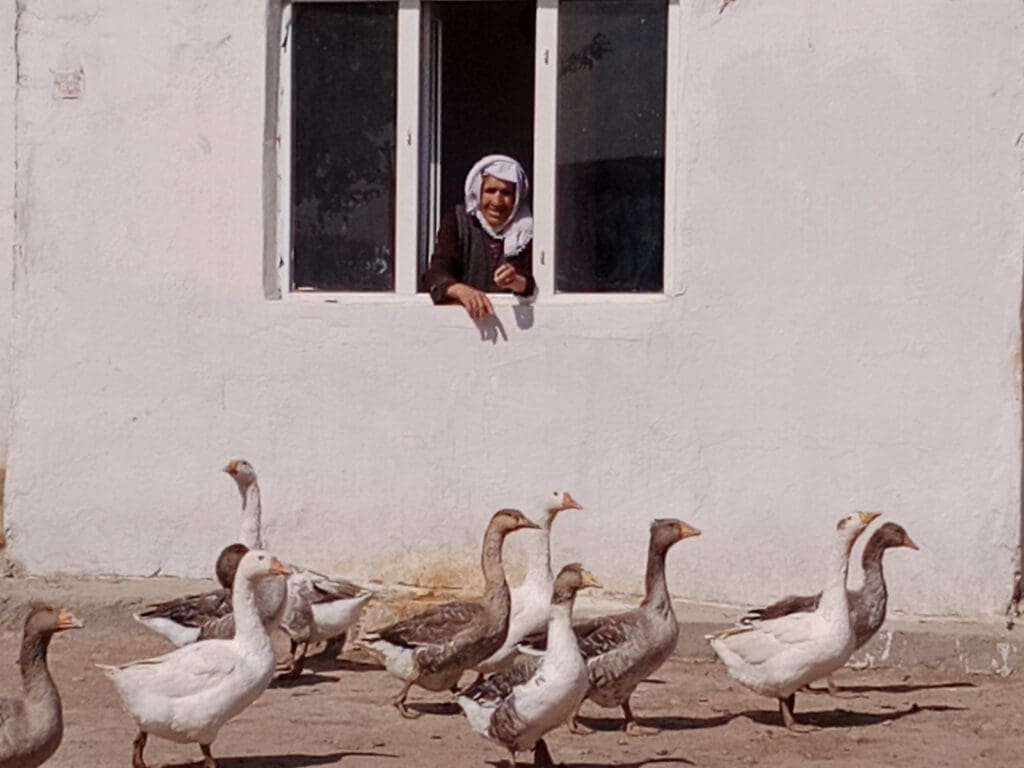
The air I still breathe
We arrive at the ruins of Ani at sunset. It is a kind of archaeological site frequented almost exclusively by Turks, but now it is deserted. They don’t take cards and we ran out of Turkish lira, so we rummage through our pockets for change, and eventually scrape together enough to get in.
A child with a dirt-stained face and blue eyes immediately approaches, carrying a pile of necklaces. He made them, instead of gemstones from fresh chickpeas, still green, picked or stolen from the fields. We buy her necklace, I wear it around my neck as other children approach: they are all under ten years old. They ask for money. Giving them to him tastes wrong, we stretch peanuts, a peach, and a package of crackers.
As through the stone portal of the ancient city, the muezzin begins to chant. The speakers scatter the sound in the wind, it goes crashing into the ruins and rolls along with the wind-driven salsas. With my eyes closed, I breathe in a breath of the air of this moment: I will still have it in me months later at the time of writing these words.
They are inside the Jungle Book monkey town, with the stone buildings still bearing the original ornaments and colours. The last rays of the day give the scene a precious look, each minute changing the atmosphere. The singing of the muezzin comes from the ruined mosque, still used as a place of worship. It overlooks a canyon, contouring the meandering river that marks the border with Armenia. The water, a couple of hundred meters below, is murky and white: flowing fast. The walls are dotted with rounded cavities, perhaps ancient necropolises.
The way to go that way does not exist
A red, blue and yellow flag flies on the hills across the border. It is hard for a daughter of the European Union to believe that there is no road to Armenia, twenty Km away.
Darkness comes between us and this place, thinning it more and more as we make our way to the exit. There is no one left outside, not even children. Only one dog is left, circling hoping for some leftover food. It’s windy: we eat and lock ourselves in the van to watch a movie, a fitting end to a day dense with road and heart.
The sun returns and it’s another day, and the miles begin to flow under the wheels again on these straight roads. We meet other people and other stories, a little girl with a yellow sweatshirt and huge eyes asks me to take a picture. I show her and she smiles, barefoot, in the embarrassment of someone who knows what to say but not how to say it. I invariably cry. Then more riparian fields, minarets, portraits of the president, and roads. And air, which is the flavour of this country, somewhere between the known world and a different land, of people who can adapt to what they have and also offer what they do not have. Barely more than halfway between Europe, and what Europe is not.
